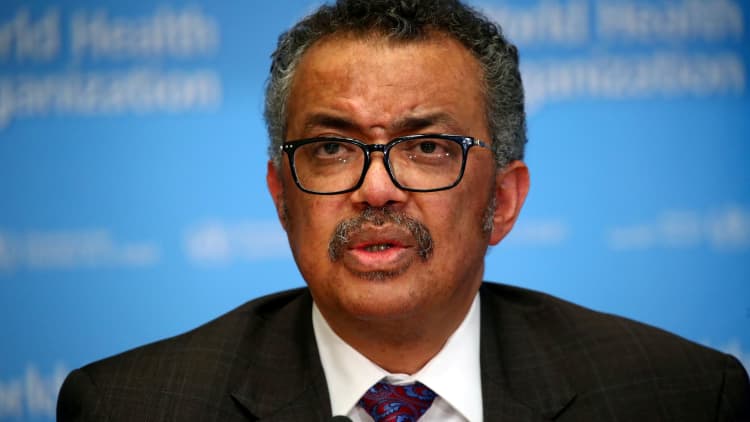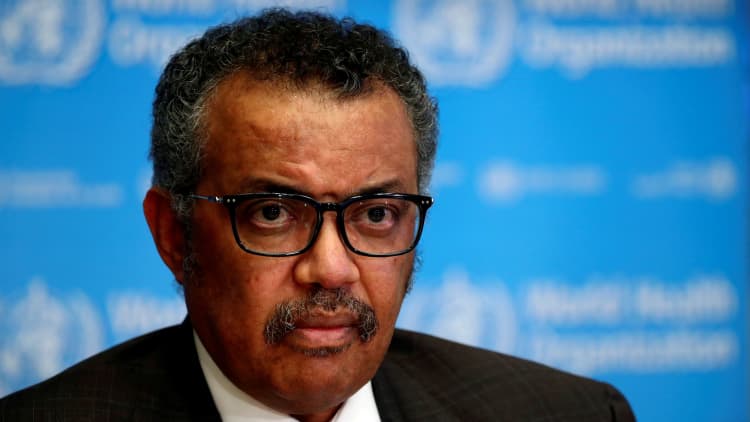
The World Health Organization's top official said Thursday he hopes the United States will reconsider its decision to leave the United Nations' health organization, saying the coronavirus can't be defeated "in a divided world."
"The problem is not about the money. It's not the financing that's the issue. It's actually the relationship with the U.S. that's more important and its leadership abroad," WHO Director-General Tedros Adhanom Ghebreyesus said during an interview with NBC Nightly News anchor Lester Holt hosted by the Aspen Security Forum.
In early July, the Trump administration notified the U.N. secretary-general of its intent to withdraw from the World Health Organization by July 6, 2021. Trump has cited what he called the WHO's misuse of funding and its cozy relationship with China as primary reasons behind his decision.
"If there are issues with the WHO or the U.N. system at large, you know, we're very open for any evaluation or assessment, and the truth can be known," Tedros said. "This can be done from inside without leaving the organization."
Tedros said during the interview that officials from the U.S. are still collaborating with the organization in its response to the pandemic and have been "participating actively."
"We still have communication, we're working together and we appreciate that, but I hope the relationship will return to normal," Tedros said.
Tensions between the U.S. and the WHO have escalated in recent months over the organization's relationship with China, where the virus emerged late last year. U.S. Secretary of State Mike Pompeo has claimed China "co-opted" the WHO. Tedros said the remarks were untrue and a distraction from the global coronavirus pandemic response.
The U.S. is the largest funder of the WHO and most of the money goes toward the agency's emergencies program, designed to assist the world's most vulnerable populations, WHO officials have previously said. They said the loss of support from the U.S., if the nation does in fact withdraw from the WHO and cut funding, could cost lives.
Dr. Mike Ryan, executive director of the WHO's health emergencies program, praised the U.S. Centers for Disease Control and Prevention, calling it "one of the greatest scientific institutions on this planet."
Trump has previously criticized CDC guidelines on reopening the nation's schools as too tough and expensive. Some former directors of the CDC have criticized the Trump administration for dismissing advice from public health officials in its pandemic response.
"I don't know if Americans realize just how important CDC is not just to Americans, but to every citizen on this planet," Ryan said during the interview. "The politics of these things will never shake the bonds that scientists have around the world and the urge, the desire, to work together to save lives."



